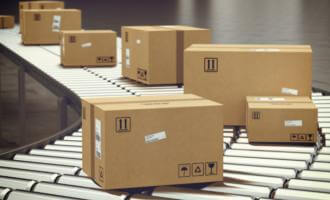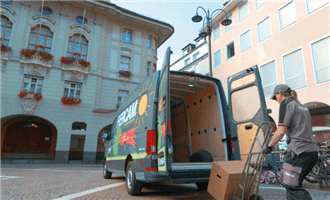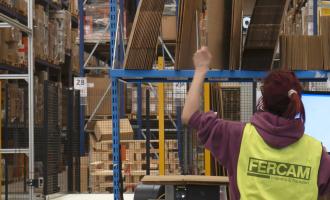
12 August 2020 - by: Eleonora Castagna
FERCAM Spain, France and Morocco: how FERCAM’s international network reacted to the Covid-19 emergency
We asked Xavier Majem, Country Manager at FERCAM Spain, France and Morocco, how lockdown and remote working were experienced, what changes were provoked by new business dynamics and what we should expect in the near future.

How did you manage work activities during the lockdown period?
Seeing what was happening in Italy, we immediately implemented initiatives to prepare ourselves to work remotely. Reacting in time has greatly benefited us as we were able to procure the additional tools and devices that would allow people to setup a functional home station, such as some new laptops. We were able to purchase them at a lower price than the later market value, in the midst of the emergency.
When the need for quarantine was confirmed in Spain, therefore, we were ready, with all the necessary materials and even a guide on how to work from home effectively, so that no one was lost. I am really proud, because we have been at the forefront and we have acted sensibly to avoid slowdowns during the lockdown period.
Where there any challenges with working remotely?
When working from home, what mostly kept our managers busy was handling interpersonal aspects, in my opinion. Of course, the climate in which we found ourselves working was not ideal, and economic uncertainty was added to the threat of the virus, exacerbated by the fact that the support of state bodies was lacking and slow (it still is). We pushed hard on communication and on the clear and shared definition of precise and measurable objectives.In the office it is easy to turn to your colleagues for support and delegation, while working remotely you gain greater independence and improve your ability to solve problems. We have certainly learned a lot. For example, I was the first to use a tenth of the amount of paper I used before. We have introduced new tools and given an important boost to digitization.
Videoconferencing meetings are now frequently on the agenda and for each team we have tried to schedule alignment meetings at least once a week, to receive news from each and give sufficient space for the exchange of information.
What have been the impacts of the pandemic on your business?
At the beginning of the quarantine we observed significant drops in activity, most of our customers found themselves having to temporarily close their stores or stop production. Of course, we did not lose heart and immediately went to look for new interlocutors, especially in the basic necessities market, such as food and health items, also to meet public demand and needs. We have thus acquired new customers, thanks to the fact that we organized ourselves promptly, so that all our operators were available, as well as our drivers. This significantly reduced the impacts of the Covid-19 emergency on FERCAM Spain's activities.
Speaking of the other organizations that I supervise as Country Manager, the situation in France was better than in Spain. May was a difficult month, but the damages were all in all minor and we continued to collaborate with our consolidated customers. Our French offices were also reorganized from the outset to facilitate working from home.
On the other hand, the experience in Morocco was different. There unfortunately work activities have reduced very considerably and the situation has not seemed to have recovered yet. To date, the country's borders remain closed, companies related to the automotive sector are at a standstill and the export of fruit and vegetables has been greatly reduced. Traffic across the Strait of Gibraltar and from Tangier dropped by 90%. The management of the epidemic in Moroccan territory is difficult, the anti-contagion rules are not always respected, and it is not possible to clearly foresee what the developments may be in the near future.
It must be said that for the Spanish market we also had another obstacle in this period, namely the termination of a large contract, which represented an important portion of our activities. As we say in Spain, 'llueve sobre mojado', when it rains it pours. But here we had a small stroke of luck, which we were ready to take advantage of: this same customer had kept the management of his e-commerce channel open through FERCAM, which had a peak of activity in the lockdown period of at least 25 % more than forecasted. In the meantime, traditional sales channels have instead suffered declines, so in this case the Covid-19 effect did not cause us particular damage, quite the contrary.
So there has been a change due to an increase in e-commerce purchases?
Definitely yes, the customers who have seen a rapid revival of their activities are the very ones who have been able to work in B2C online sales. During the quarantine, digital sales almost doubled in Spain. Customers for whom we were expecting 10 trucks per day came to commit 35-40 due to online orders.
What do you foresee for the near future?
At the moment, we believe it is useful to return to normal, gradually returning to the office after the summer. Some have had some difficulties in working from home, for example those with small children or those who have suffered from being within the same four walls from morning to evening. Many of our colleagues, however, have enjoyed the experience and we feel it is important to make the most of this in the future, keeping it an option for those who may need it at times and benefit from it in the long term.Of course, it is a method that strictly depends on the type of activity carried out, for some tasks we do not believe it is optimal. And it must be linked to a precise definition of measurable objectives, as a reference for employees and their managers. We absolutely cannot be less competitive or lose productivity, but with solid results and reaching our targets, thanks to the right motivation of all collaborators, we now know that we can also consider other ways of organizing work.
Although we hope it does not happen, we are preparing for a second possible lockdown phase, carefully analyzing what we can improve, what we have lacked and what has worked well. We continue with the strategy of investing in the search for new customers in the sector of basic necessities, to continue to support those services that in the emergency phase were of vital importance for the community. And at the same time, we hope that we are truly in a new phase, to return soon to full speed on all fronts.
Share


 Language
Language

























